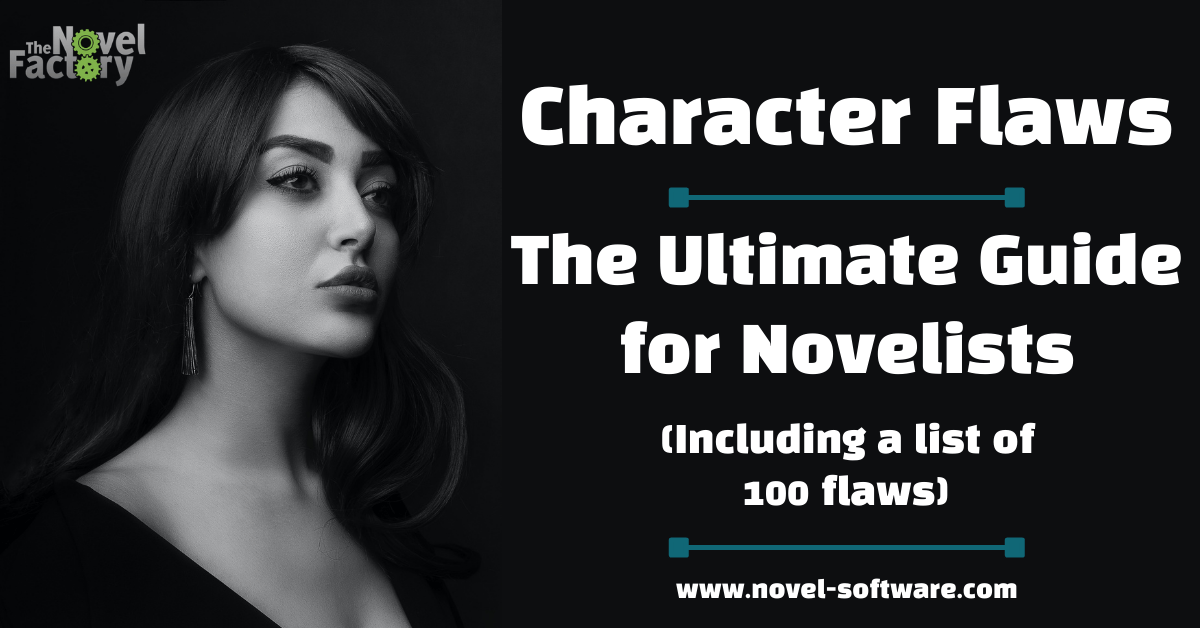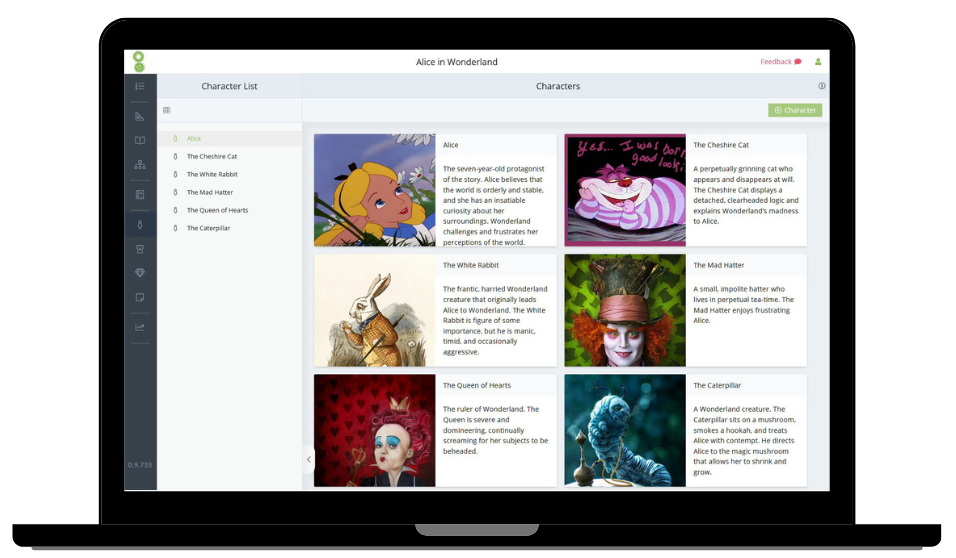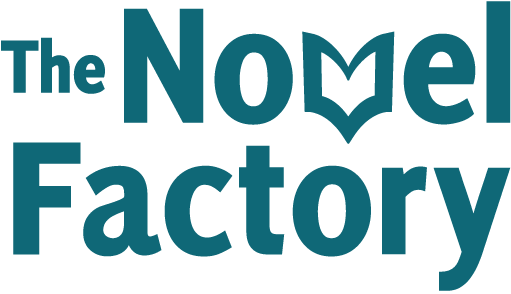
Character Flaws: The Ultimate Guide for Novelists
Creating characters who feel real and knowable can be a daunting task.
So, you’ve devoted a great deal of time researching and developing incredible characters you’re sure readers will love. They’re definitely not weak – they’re skilled, empathetic, they have goals…
Problem is, they’re still falling flat. You’re frustrated.
Have you considered that your characters may be too perfect?
You read that right—too perfect.
There are two major problems with perfect. One is that perfect people are boring at best, irritating at worst. But the second – and this is more serious for you as a writer – nobody is perfect, so perfect characters never feel authentic.
If your characters are falling flat and you or your readers are unable to identify with them, perfect may be your problem.
To create characters with whom your readers can empathize, they need to be vulnerable. Human. Flawed. (Even superheroes have flaws…)
Give your characters forgivable, relatable human flaws that create tension and conflict in your story. Before long, you’ll have created a cast of characters so compelling your readers won’t ever want to stop spending time with them.
What Are Character Flaws?
A character flaw is an internal mental or emotional fault, fear, bias, or weakness that has a direct impact on the personality, actions, or ability of an individual.
Not all problems are flaws – some things are external. For example, having a mean mother-in-law, a depressing job, or a wooden leg are not character flaws.
Characters flaws can range from moral shortcomings or poor personality traits that prevent the character from ever achieving true happiness, to much simpler things , like a physical tic, or a quirk that adds humour to your story.
The flaws fictional characters possess are often categorized into three categories: minor, major, and tragic (or fatal).
Minor Flaw
A minor flaw is an insignificant flaw unique to your character that makes them memorable, but otherwise has no major impact on the story.
Examples: a habit like nose picking or nail biting, being untidy, constantly interrupting people
Major Flaw
A major flaw is a noticeable mental or moral flaw that causes significant problems for your character.
Major flaws affect different character roles in different ways.
- The hero/protagonist’s major flaw is often the obstacle that will make or break them
- Their major flaw is usually what destroys the villain
- With supporting characters, their major flaws are often the catalyst for both their positive and negative actions
Examples: gambling addiction, fear of the dark, shopaholic
Tragic/Fatal Flaw
Also known as ‘hamartia,’ a tragic or fatal flaw, left unchecked, can be the ultimate downfall/obstacle for an otherwise noble, exceptional character.
Tragic/fatal flaws:
- define the core problem for the hero/protagonist, and must be overcome for them to complete their character arc and become fulfilled.
- are usually the cause of the ultimate downfall for the villain.
- are usually the cause of either the corruption or redemption (or both) for supporting characters.
Examples: excessive personal loyalty, hubris (overly self-confident), bitterness
Character Flaw Examples
- In Indiana Jones, Dr. Henry Walton “Indiana” Jones, Jr. (Indy)—who is largely afraid of nothing—is terrified of snakes.
- In The Adventures of Tom Sawyer, Tom isn’t a bad kid, but a mischievous boy who keeps himself and his friends in a heap of trouble.
- In Girl on the Train, Rachel’s alcoholism and frequent blackouts leave her riddled with self-doubt. Like Rachel, readers are left wondering whether she’s the culprit or the victim.
- In Columbo, LAPD homicide detective Lieutenant Columbo comes across as an unkempt, absentminded, bumbling screw-up—major flaws that hide how shrewd and sharp he is and cause everyone to underestimate him.
- In The Scarlet Letter, Arthur Dimmesdale is the Puritan minister who fathered an illegitimate child with Hester Prynne and lacks the courage to take responsibility for his own mistakes.
- In Game of Thrones, Tyrion is the sarcastic drunk, a character that adds humor and elicits sympathy when he’s drinking to drown his sorrows.
- In A Christmas Carol, Ebenezer Scrooge is defined by his greed and lust for power. He’s feared, not respected…and in the end, is reminded who he really is by the ghosts of Christmases past, present, and future.
The Ultimate List of Character Flaws You Can Use
The list of character flaws you can use in your writing is endless, but we’ve compiled a list of 100 to give you a starting place.
But, beware of stereotypes. Great characters who feel knowable break the mold—a good technique is to appeal to a stereotype, but give the character some quirks or traits that contradict that stereotype.
For example, you could have an argumentative, arrogant bad boy character who secretly takes care of injured wildlife. Or you could have a humorless, pompous Headteacher, but she’s actually inspiring and generous.
Complex characters with numerous flaws and good traits can capture our attention so completely we feel like we know them in real life.
Use this list of terms and short definitions to help you build an identity for your characters so that whatever adventure they pursue, readers can relate.
- Abusive: offensive, insulting, unnecessarily cruel.
- Addiction: a compulsive commitment to a practice or substance that causes one to physically or psychologically form a habit.
- Aggressive: confrontational, belligerent, or forceful.
- Anal: obsessed with details.
- Annoying: irritates others.
- Antagonistic: feels and shows hostility toward a person or thing.
- Argumentative: constantly expresses a differing opinion.
- Arrogance: feels superior, exaggerates own self-importance.
- Aversion: a strong dislike.
- Banal: unoriginal, boring.
- Bigmouth: a loud, boastful person.
- Blame: responsibility for a fault or wrong placed on self or others.
- Blunt: brutally honest, straightforward.
- Bold: willing to take risks.
- Bossy: likes to tell others who to do.
- Callous: cruel and unfeeling toward others.
- Careless: isn’t terribly concerned with avoiding harm or mistakes.
- Clumsy: handles things awkwardly.
- Cocky: conceited, arrogant.
- Combative: itching for a fight.
- Competitive: always in competition with others.
- Compulsive: an irresistible urge to behave in a way that is against one’s conscious wishes. (example: compulsive eating, compulsive lying)
- Conceited: overly proud of oneself.
- Contrary: tends to do the opposite of what is usual, requested, or expected.
- Cowardice: timid. A lack of courage.
- Critical: judgemental. One who criticizes.
- Cruel: intentionally causing pain and suffering with no remorse.
- Cynical: distrustful, apprehensive, cautious.
- Daring: adventurous, bold in thought, and in action.
- Defiant: a desire to resist/fight.
- Dependent: to rely on others for support.
- Dictator: domineering.
- Dishonest: willfully untrustworthy, deceptive.
- Disrespectful: to show a lack of respect or regard for someone.
- Disturbed: mentally troubled or disabled. Also, unsettled.
- Dominant: powerful or influential. Stronger than another.
- Egotistical: self-centered.
- Envious: full of resentment.
- Erratic: behaving in a way that is not normal, or expected.
- Fear: an emotion caused by the belief that one is in danger.
- Feeble: a lack of physical strength.
- Fickle: someone who suddenly changes their mind frequently.
- Greed: a selfish desire for something.
- Grumpy: ill-tempered.
- Grungy: shabby, dirty, grimy.
- Gullible: easily persuadable.
- Hard: a person who is marked by resentment and tends to be strict, relentless.
- Humorless: serious. Not funny.
- Ignorant: lacks sophistication. Uneducated.
- Immature: childish.
- Impish: mischievous.
- Incompetence: an inability to do something the way it needs to be done.
- Inconsiderate: selfish, insensitive. A complete disregard for the feelings of another.
- Incoherent: not cohesive, unclear.
- Inflexible: someone who is unable to change.
- Jealous: envious, unhappy toward another because of something they possess.
- Lanky: awkwardly tall and thin.
- Lazy: an unwillingness to be active, be it work or play. Idle.
- Loner: someone who sticks to themselves. Prefers to be alone. An introvert.
- Loyal: steadfast. Firm in allegiance to a person or cause.
- Manipulative: an attempt to influence the behavior of another for personal gain.
- Messy: untidy.
- Naive: someone who’s easily taken advantage of, lacks understanding or worldly wisdom.
- Narcissist: one who has an unusually high opinion of self.
- Oblivious: unaware.
- Obsessive: one who thinks about someone or something way too much.
- Oppressor: someone or a group of people who use their power to keep others under control.
- Overconfidence: too confident or overly sure of oneself.
- Overly sensitive: too easily offended or upset.
- Pacifist: one who believes war and violence are wrong.
- Paranoid: suspicious, fearful.
- Perfectionist: one who’s never satisfied, always striving for flawlessness.
- Prejudiced: bigoted, one-sided, biased.
- Pridefulness: an overinflated opinion of oneself.
- Pompous: pretentious.
- Rebellion: open defiance, resistance to authority.
- Reckless: a disregard for the consequences of one’s actions.
- Rigid – opinionated, close-minded.
- Selfish: a concern for oneself over others.
- Self-deprecating: one who uses humor to belittle or undervalue themselves.
- Snaggletoothed: broken teeth or teeth that don’t properly align.
- Spiteful: an attempt to upset or hurt another person out of anger.
- Stubborn: a determination to remain unchanged, despite a good reason to do so.
- Squeamish: someone who is easily disgusted or made to feel sick by the sight of something.
- Tactless: insensitive.
- Thoughtless: inconsiderate, careless.
- Timid: one who is easily frightened, and lacks confidence and courage.
- Unchanging – resists new food, new tech, new styles, new anything.
- Unconventional: not the way most people do things.
- Unsympathetic: a lack of pity or sorrow for the plight of another.
- Vanity – an obsession with self.
- Vengeful: a feeling of revenge,
- Victim Mentality: the assumption that one is always the victim.
- Vulnerable: easily hurt or influenced, difficult to defend.
- Wasteful: careless with a thing of value.
- Weakling: one who is physically or mentally weak.
- Wimpy: physical weakness.
- Withdrawn: one who sticks to themselves and is detached or unresponsive to others.
- Zany: eccentric.
- Zealous: enthusiastic, eager interest.
How to Create Authentic Character Flaws
The most powerful character flaws are based on a past experience or trauma.
A power-hungry Princess might be cruel enough to murder her father to win the crown because she never felt loved as a child and it left her devoid of empathy.
An artist might have grown up in an overly conservative family, meaning now he overcompensates by constantly trying too hard to be entertaining, surprising, and larger than life.
A woman may constantly fiddle with her wedding ring because years ago her husband cheated on her, and she’s never fully trusted him since.
Here are some examples from a few well-known stories:
Lotso is a nasty bully in Toy Story 3 because his heart was broken when he got lost and his child replaced him.
In the example above from Girl on the Train, Rachel’s flaws are all intrinsic to the story, because they’re not actually her fault. Her character arc is completed when she realizes she was psychologically manipulated and sheds the flaws that have been laid on her.
Tyrion from Game of Thrones drinks because he’s been insulted and blamed all his life.
Build each character carefully. Give them flaws based on their unique personalities and backstories. Don’t just slap a flaw on your characters to try and make them feel authentic.
Weave major or fatal flaws into the backstory, match minor flaws to personality.
Remember, readers aren’t looking for perfect characters. They’re looking for characters who feel like someone they know. Characters who are people they want to spend time with.
- Look at your major and minor characters – do they all have flaws?
- Do the major characters have multiple flaws?
- Do the character’s flaws antagonise each other? (ideally, the answer will be yes)
- Look into your characters’ backstories and see if you can identify experiences that might have given rise to new flaws.
- Experiment with making a character who is riddled with flaws and one who has hardly any. How do they compare? Which is the more interesting / relatable / compelling character?
For more help with character development, check out our Ultimate Character Questionnaire.
Unlock your writing potential
If you liked this article by the Novel Factory, then why not try the Novel Factory app for writers?
It includes:
- Plot Templates
- Character Questionnaires
- Writing Guides
- Drag & Drop Plotting Tools
- World Building resources
- Much, much more

